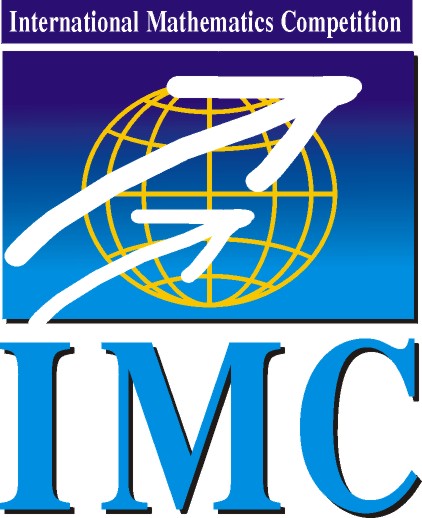
|
International Mathematics Competition
|
IMC 2026 |
| Information | Results | Problems & Solutions | Photos |
IMC2018: Day 2, Problem 9
Problem 9. Determine all pairs \(\displaystyle P(x)\), \(\displaystyle Q(x)\) of complex polynomials with leading coefficient \(\displaystyle 1\) such that \(\displaystyle P(x)\) divides \(\displaystyle Q(x)^2+1\) and \(\displaystyle Q(x)\) divides \(\displaystyle P(x)^2+1\).
(Proposed by Rodrigo Angelo, Princeton University and Matheus Secco, PUC, Rio de Janeiro)
Solution. The answer is all pairs \(\displaystyle (1,1)\) and \(\displaystyle (P,P+i)\), \(\displaystyle (P,P-i)\), where \(\displaystyle P\) is a non-constant monic polynomial in \(\displaystyle \mathbb{C}[x]\) and \(\displaystyle i\) is the imaginary unit.
Notice that if \(\displaystyle P | Q^2 + 1\) and \(\displaystyle Q | P^2 + 1\) then \(\displaystyle P\) and \(\displaystyle Q\) are coprime and the condition is equivalent with \(\displaystyle PQ | P^2 + Q^2 + 1\).
Lemma. If \(\displaystyle P, Q\in \mathbb{C}[x]\) are monic polynomials such that \(\displaystyle P^2 + Q^2 + 1\) is divisible by \(\displaystyle PQ\), then \(\displaystyle \deg P = \deg Q\).
Proof. Assume for the sake of contradiction that there is a pair \(\displaystyle (P,Q)\) with \(\displaystyle \deg P \neq \deg Q\). Among all these pairs, take the one with smallest sum \(\displaystyle \deg P + \deg Q\) and let \(\displaystyle (P,Q)\) be such pair. Without loss of generality, suppose that \(\displaystyle \deg P > \deg Q\). Let \(\displaystyle S\) be the polynomial such that
\(\displaystyle \frac{P^2+Q^2 + 1}{PQ} = S. \)
Notice that \(\displaystyle P\) a solution of the polynomial equation \(\displaystyle X^2-QS X +Q^2 + 1 = 0\), in variable \(\displaystyle X\). By Vieta's formulas, the other solution is \(\displaystyle R = QS-P = \dfrac{Q^2 + 1}{P}\). By \(\displaystyle R=QS-P\), the \(\displaystyle R\) is indeed a polynomial, and because \(\displaystyle P, Q\) are monic, \(\displaystyle R=\dfrac{Q^2 + 1}{P}\) is also monic. Therefore the pair \(\displaystyle (R,Q)\) satisfies the conditions of the Lemma. Notice that \(\displaystyle \deg R = 2\deg Q - \deg P < \deg P\), which contradicts the minimality of \(\displaystyle \deg P+ \deg Q\). This contradiction establishes the Lemma.
By the Lemma, we have that \(\displaystyle \deg (PQ) = \deg (P^2+Q^2+1)\) and therefore \(\displaystyle \dfrac{P^2+Q^2+1}{PQ}\) is a constant polynomial. If \(\displaystyle P\) and \(\displaystyle Q\) are constant polynomials, we have \(\displaystyle P = Q = 1\). Assuming that \(\displaystyle \deg P = \deg Q \geq 1\), as \(\displaystyle P\) and \(\displaystyle Q\) are monic, the leading coefficient of \(\displaystyle P^2+Q^2+1\) is \(\displaystyle 2\) and the leading coefficient of \(\displaystyle PQ\) is \(\displaystyle 1\), which give us \(\displaystyle \dfrac{P^2+Q^2+1}{PQ} = 2\). Finally we have that \(\displaystyle P^2+Q^2 + 1 = 2PQ\) and therefore \(\displaystyle (P-Q)^2 = -1\), i.e \(\displaystyle Q = P + i\) or \(\displaystyle Q = P - i\). It's easy to check that these pairs are indeed solutions of the problem.
© IMC